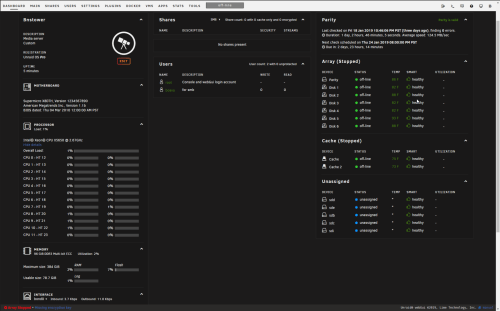
Hey there! Are you tired of managing multiple hard drives and worrying about data loss? Well, have you heard about Unraid? It’s a powerful operating system that allows you to store all your data in one place with the freedom to easily expand and maintain your storage system. In this article, we’re going to take a look at what Unraid is, how it works, and why it might be the solution you’ve been searching for. So, let’s get started!
Unraid Download: The Ultimate Guide for Beginners
Are you looking for a reliable way to store and manage your data? Look no further than Unraid. This powerful operating system offers a wide range of features, making it an ideal option for those who need a central location to store their files.
In this article, we’ll explore Unraid download, installation, and setup. Whether you’re a beginner or experienced user, this guide is designed to help you get started with Unraid quickly and easily.
How to Download Unraid
The first step to using Unraid is to download it from the official website. Start by visiting the Unraid website and click on the ‘Download’ button. In the next window, select the latest version of Unraid and click on the ‘Download’ button to start the download process.
Once the download is complete, extract the files from the ZIP archive and save them to a location on your hard drive. Make sure that you have enough space to store the files, as the installation requires a minimum of 2GB of free space.
How to Install Unraid
With the files downloaded and extracted, it’s time to install Unraid. First, you’ll need to create a bootable USB drive with the Unraid system image. You can do this by using Rufus or another USB bootable tool.
Once you have the bootable USB drive, insert it into the computer you want to install Unraid on and restart the computer. As the computer restarts, enter the BIOS menu, and change the boot order to boot from USB. This will allow you to boot into the Unraid installer.
The Unraid installer will guide you through the installation process, which involves selecting the appropriate drive to install the system on, creating a password for your Unraid web interface, and configuring your network settings.
Once the installation is complete, you’ll be prompted to reboot your computer. After the reboot, you can access the Unraid web interface through your preferred web browser.
How to Set Up Unraid
With Unraid installed, it’s time to set it up to suit your needs. Here are some steps you can take to customize and optimize the system for your specific use case:
1. Configure Your Storage Devices
Under the ‘Devices’ tab in the Unraid web interface, you can configure your storage devices. This includes assigning drives to a particular data share, adding new drives, and setting up parity drives.
2. Create Data Shares
Next, create data shares to organize the files you’ve stored on your Unraid server. You can create data shares for photos, videos, music, and other types of files.
To create a data share, navigate to the ‘Shares’ tab in the Unraid web interface, and click on ‘Add Share.’ There, you can set the share name, disk allocation, and access permissions.
3. Install and Configure Dockers
Dockers are containerized applications that you can install on your Unraid server to perform various tasks, such as media streaming, file sharing, and virtualization.
To install a Docker, navigate to the ‘Apps’ tab in the Unraid web interface and browse the available applications. You can search for Docker by keyword, category, or repository. Once you find the appropriate Docker, click on the ‘Install’ button to install it.
4. Configure Plugins
Plugins are additional software packages that you can install on your Unraid server to extend its functionality. Some popular plugins include cloud sync, backup, and security tools.
To install a plugin, navigate to the ‘Plugins’ tab in the Unraid web interface and click on ‘Install Plugin.’ Then, browse the available plugins and click on the ‘Install’ button to install the one you want.
Benefits of Using Unraid
Now that you know how to download, install, and set up Unraid let’s explore some of the benefits of using this operating system.
1. Easy to Use
Unraid is designed with ease of use in mind. The web interface is intuitive and user-friendly, allowing you to manage your data and applications easily.
2. Scalable
Unraid is highly scalable, allowing you to add or remove storage devices and applications as needed. This makes it an ideal option for growing businesses and home users alike.
3. Data Protection
Unraid uses a unique data protection system called ‘parity protection,’ which ensures that your data is protected even in the event of a drive failure.
4. Energy-Efficient
Unraid is optimized for low-power use, making it an energy-efficient option for businesses and individuals alike.
Conclusion
Unraid is an excellent option for those who need a reliable way to store and manage their data. With its ease of use, scalability, and data protection features, Unraid is an ideal choice for businesses and home users alike.
By following the steps outlined in this guide, you can download, install, and set up Unraid quickly and easily. With a few customizations and optimizations, you can make Unraid work for you and your specific needs.
